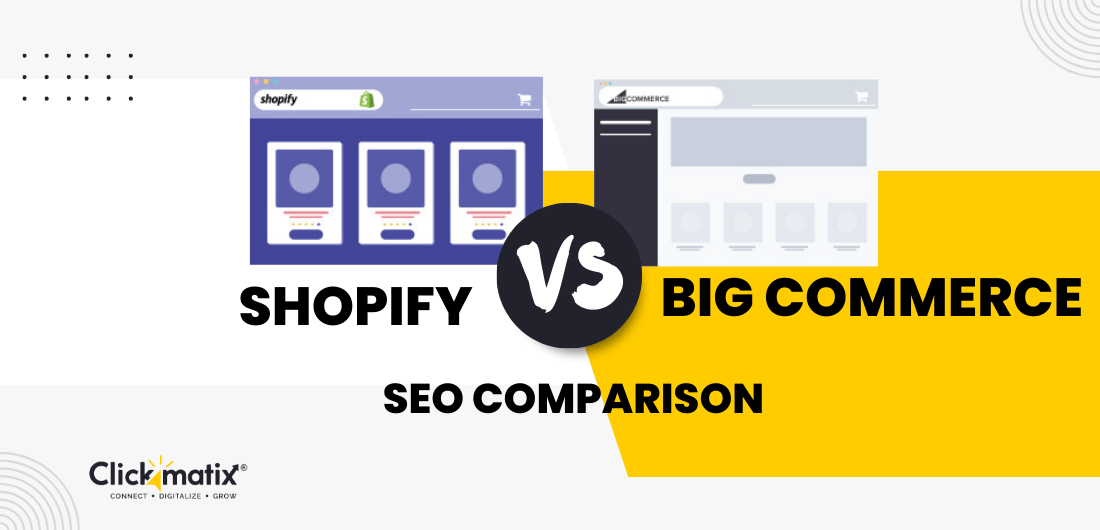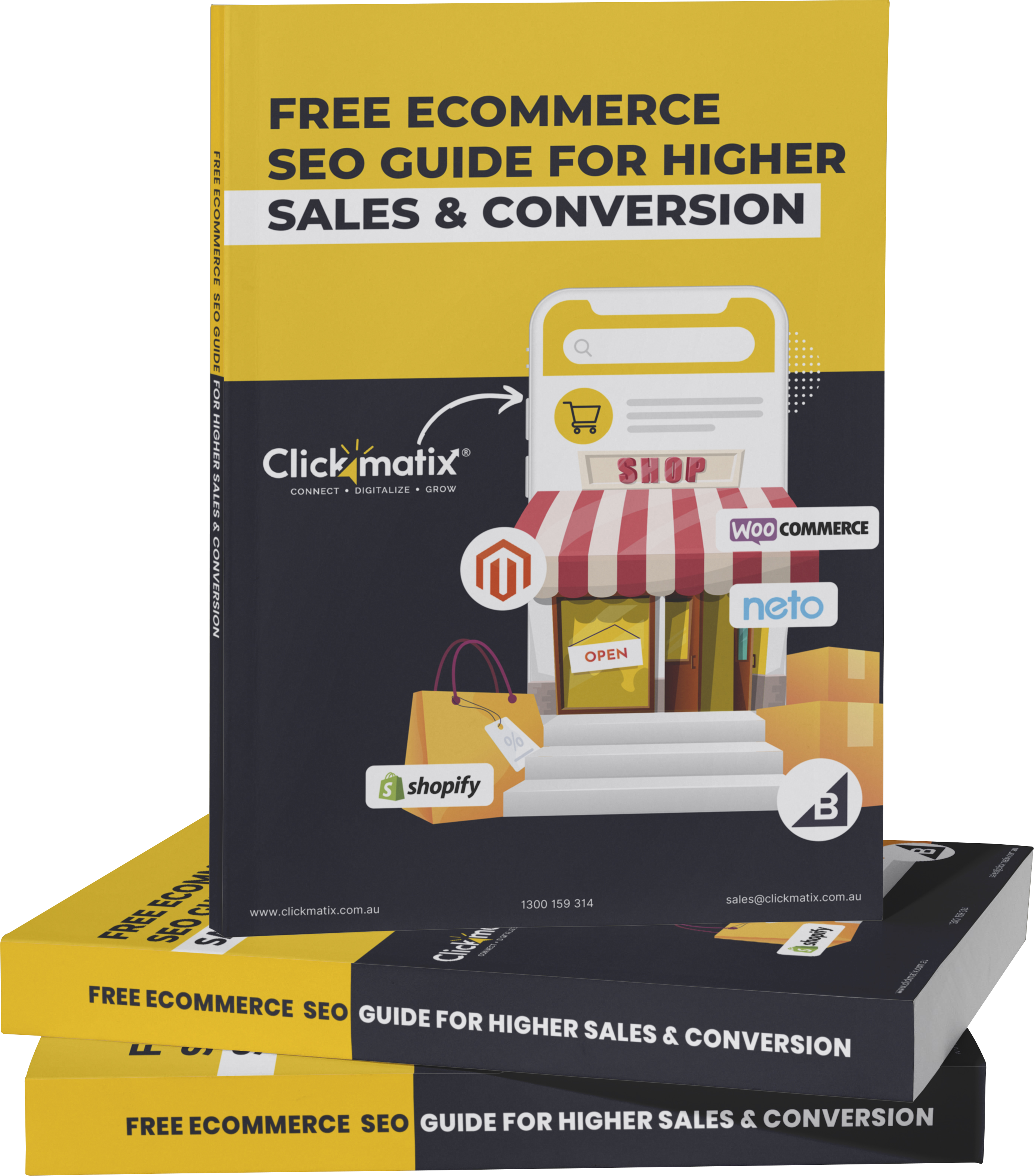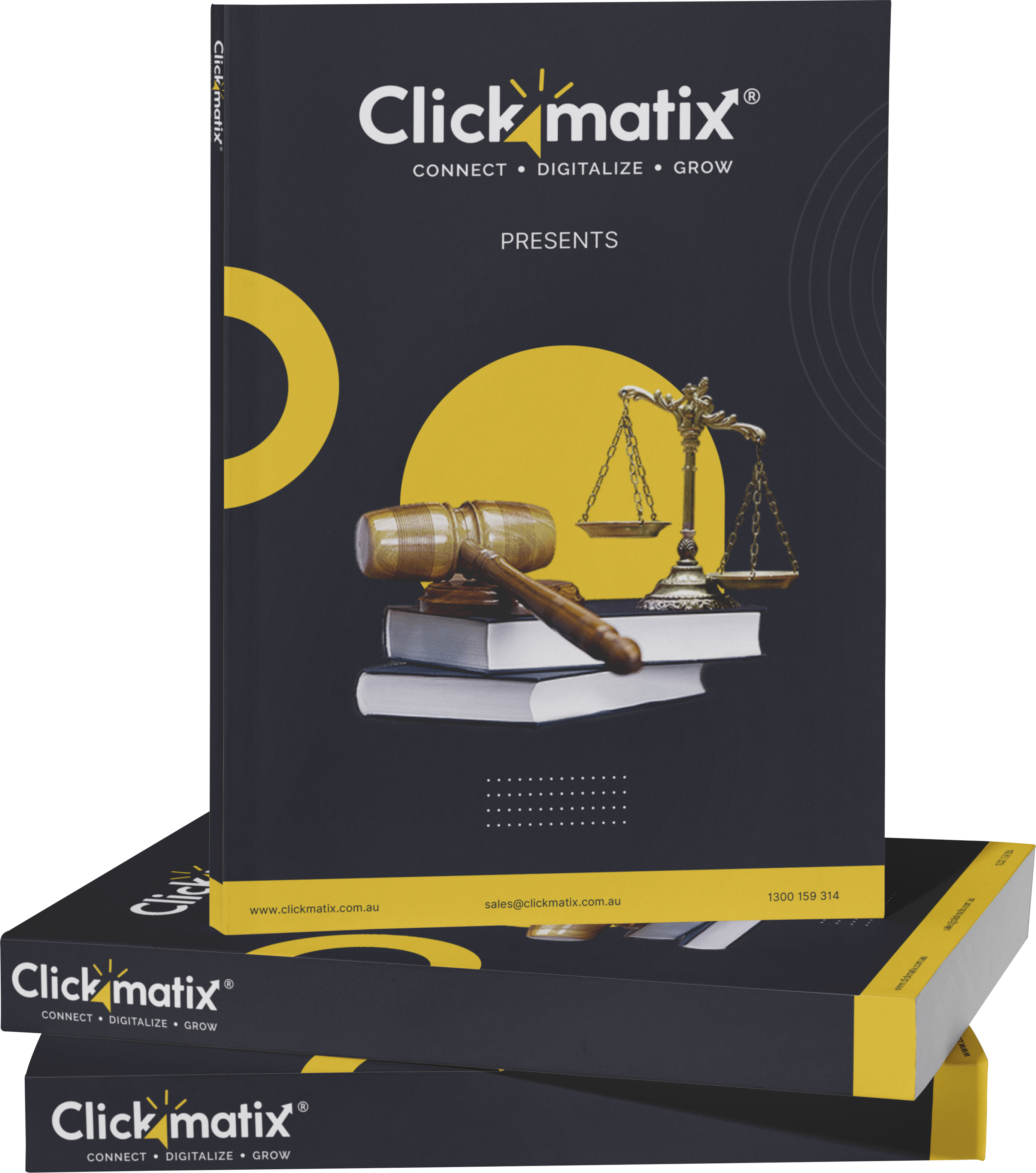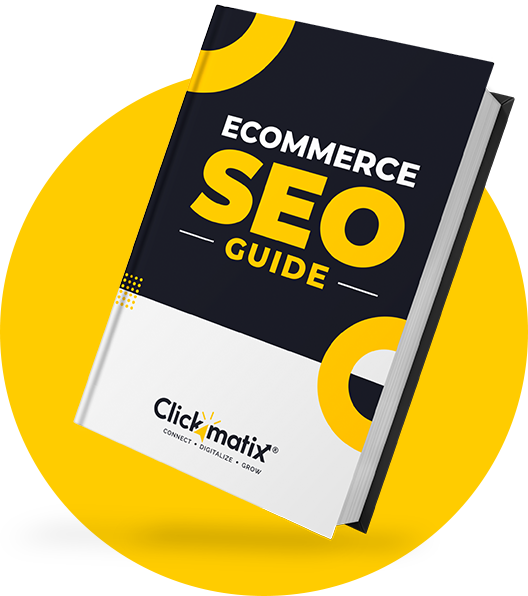
In the dynamic realm of e-commerce, the clash between Shopify and BigCommerce has garnered global entrepreneurial intrigue. Unravelling the intricacies of this confrontation is akin to unlocking a portal to digital triumph.
As search engines assert dominance, commandeering a substantial 51% of online traffic, the selection between BigCommerce and Shopify emerges as a pivotal juncture.
Remarkably, a mere 44% of enterprises channel their efforts towards the intricacies of SEO, often eclipsed by the allure of social media, despite its modest 5% contribution to virtual footfall.
Against this backdrop, an engaging narrative unfolds – one pitting Shopify against BigCommerce – each diligently optimising strategies, leaving business proprietors standing at the crossroads of exploration.
This comparison navigates the labyrinthine domain of e-commerce SEO, illuminating the divergent blueprints pursued by these industry titans.
Why SEO Capabilities Matter?
In the world of e-commerce, the Shopify vs. BigCommerce SEO comparison takes the spotlight, underscoring the critical significance of robust SEO capabilities. Strong SEO serves as the linchpin for elevating website rankings and facilitating seamless customer discovery.
However, when exploring the technical intricacies, distinctions between BigCommerce and Shopify emerge. Shopify, though formidable, exhibits limitations in terms of URL customisation and restricted access to robot.txt and CDN configuration. Additionally, it mandates third-party app dependencies for Google Amp integration and bulk 301 direct imports.
Conversely, BigCommerce emerges as the superior contender, boasting a comprehensive suite of SEO features from the outset. This includes customisable URLs, microdata support, 301 redirects, URL rewriting capabilities, and a built-in CDN. With BigCommerce as the chosen platform, your SEO strategy gains a formidable edge, ensuring optimal online visibility in the competitive digital landscape. Here are some key and noticeable findings from Shopify vs BigCommerce SEO.
Functionality
Embarking on the pursuit of seamless out-of-the-box functionality, the captivating showdown between Shopify and BigCommerce takes centre stage. This exploration transcends the rivalry, jumping into the waters of e-commerce finesse. Amidst the Shopify vs. BigCommerce SEO battlefield, search engines assert dominance, commanding a substantial 51 per cent of virtual traffic. Interestingly, a mere 44 per cent of enterprises allocate their resources towards SEO endeavours. In comparison, a staggering 81 per cent remain entranced by the allure of social media, contributing a modest 5 per cent to the virtual footfall. Within this backdrop, the narrative unfolds between two industry titans, BigCommerce and Shopify, crafting their strategic blueprints. Business transformers find themselves at a crossroads, carefully charting their course. This analysis navigates the labyrinthine e-commerce SEO landscape, casting light on the divergent trajectories embraced by these digital behemoths.
Usability and TCO
An examination might suggest parity in the offerings of BigCommerce and Shopify SEO. Yet, meticulous scrutiny unearths a pivotal distinction in the realm of third-party applications and supplementary components. The Shopify vs BigCommerce SEO fight gives us the twist that has piqued the interest of store proprietors.
BigCommerce, armed with its applications and automated platform updates, is forging a trajectory towards operational seamlessness. The alluring prospect of uniform pricing accentuates its allure, contributing to cost rationalisation and obviating the necessity for untimely re-platforming endeavours. This isn’t mere rhetoric; merchants stand to accrue substantial annual savings, a notable $20,000 to $30,000.
Beyond the statistical discourse, BigCommerce’s unwavering commitment to enhancing usability and prudent fiscal management strengthens its stance as a formidable contender in the SEO domain, where each click bears significance and every monetary unit commands attention.
Growth
When scrutinising Shopify and BigCommerce e-commerce giants, it becomes evident that Shopify, with its strict API call per second limits, a ceiling of 100 SKUs per product, and an allowance of just three product options, may present formidable challenges as a business scales.
BigCommerce, on the other hand, stands as the architect of scalability. It’s engineered to seamlessly adapt to your enterprise’s growth, boasting a capacity for up to 600 SKUs per product and an impressive 250 options. In this technical landscape, BigCommerce proves itself to be the ideal companion for those with expansive aspirations, ensuring that no matter how ambitious your objectives are, your platform will never be the limiting factor.
Robots.txt:
In this Shopify vs. BigCommerce SEO battle, managing the robots.txt file becomes a pivotal tool for guiding search engine crawling and indexing. Shopify’s platform hosts numerous directives within the robots.txt file that impose restrictions on which pages search engines can scan, often including pages that site owners might want to have indexed.
For example, certain lines in Shopify’s robots.txt file inhibit search engines from scanning URLs with plus signs or spaces following the ‘collections’ folder. This becomes problematic when product categories or vendor names contain multiple words, as these URLs become non-crawlable. This not only hinders access to valuable content but also disrupts the search engine’s crawl pattern.
The central issue here lies in the lack of user control. It’s impractical for arbitrary factors, like the presence of spaces or multi-word terms, to dictate page indexing. Users should be able to define how search engines crawl and index their sites, free from such limitations.
Here, BigCommerce emerges as the superior choice. Unlike Shopify, it empowers users to edit the robots.txt file, providing a native and user-friendly feature that doesn’t require a headless setup. This technical advantage solidifies BigCommerce’s position as the preferred platform for precise SEO control and robots.txt management.
HTTP:
The Shopify vs. BigCommerce SEO rivalry comes at a juncture where a discerning trend emerges, suggesting a predictable outcome. Remarkably, both BigCommerce and Shopify SEO currently lack native capabilities to directly modify HTTP headers within their platforms.
BigCommerce presents a compelling turnaround by offering headless functionality or seamless integration with WordPress. This enables users to gain control over HTTP headers, allowing for customisation and optimisation.
For those exclusively relying on Shopify, the prospect of manipulating HTTP headers appears dim. Yet, the significance of HTTP headers in the world of SEO is undeniable. They serve as indispensable tools for conveying critical information to search engines, including canonical links, robot-tag instructions, cache control policies, and more.
In short, these headers substantially influence the website’s search engine visibility and user experience. Shopify’s current limitations in this domain may pose challenges. Those operating within the BigCommerce ecosystem enjoy the advantage of fine-tuning HTTP headers, a valuable asset for SEO professionals seeking precise control over vital ranking factors and website performance.
Conclusion:
In the end, the Shopify vs. BigCommerce SEO comparison uncovers a diverse landscape. Both platforms boast their unique strengths and weaknesses.
Shopify impresses with its user-friendly interface and vast menu of plugins, making it an appealing choice for those who prioritise ease of use. However, Shopify’s limitations in advanced SEO techniques, such as HTTP header customisation and robots.txt management, could pose challenges for seasoned SEO professionals.

Get weekly insights for revenue-shifting results
Sign up for our newsletter and be the first one to know about our exclusive offers, digital marketing news and updates.
|
|
Thank you for Signing Up |


On the other hand, BigCommerce emerges as the robust alternative, particularly well-suited for SEO experts in Perth. Its headless architecture, integrated SEO tools, and technical flexibility, including fine-tuning HTTP headers and managing robots.txt, provide a dynamic canvas for crafting highly optimised websites. This distinctiveness firmly establishes BigCommerce as the preferred choice for businesses and professionals aiming to unlock the full potential of SEO in the fiercely competitive e-commerce domain.
Ultimately, the selection between Shopify and BigCommerce pivots on the unique requirements and objectives of the online venture.
FAQs:
What is the difference between BigCommerce and Shopify?
BigCommerce stands out for its design flexibility and scalability, ideal for businesses with unique needs. Shopify, on the other hand, excels in user-friendliness, making it a great choice for those seeking simplicity.
What is the price comparison between BigCommerce and Shopify?
When it comes to pricing, BigCommerce often offers better value for mid-sized businesses, starting at $29.95/month, while Shopify's pricing begins at $29/month.
What sales features do BigCommerce and Shopify offer?
BigCommerce and Shopify both cover essential sales features like secure payments and inventory management. BigCommerce offers native multi-channel selling, while Shopify thrives on its extensive app ecosystem, allowing for added versatility in sales strategies.
In search for strategic sessions?
Let us understand your business thoroughly and help you
strategies your digital product.
It's time to call your business-
a brand!
Australian Owned Agency
Save Time and Money
Unbeatable Value
Where Work Gets Done

free Ecommerce SEO guide for Higher Sales & Conversion



THE ULTIMATE MARKETING GUIDE FOR LAWYERS



Youtube Ads Guide How to Advertise on Youtube



free Ecommerce SEO guide for Higher Sales & Conversion


It's time to call your business-
a brand!
Australian Owned Agency
Save Time and Money
Unbeatable Value
Where Work Gets Done



The Game-Changing Ecommerce SEO Guide That Will Blow Your Mind & Sales
With this Ecommerce SEO Guide, you'll be able to:
- Develop a Ecommerce SEO strategy.
- Build a content marketing strategy that aligns with your business goals.
- Convert your website visitors into paying customers.



Youtube ads guide how to advertise on youtube
With this Youtube ads Guide, you'll be able to:
- Develop a Youtube ads strategy.
- Build a type of ads of your own that aligns with your business goals.
- Generate revenue from youtube ads.
It's time to call your business-
a brand!
Australian Owned Agency
Save Time and Money
Unbeatable Value
Where Work Gets Done













 Australian Owned Agency
Australian Owned Agency Save Time and Money
Save Time and Money Unbeatable Value
Unbeatable Value Where Work Gets Done
Where Work Gets Done